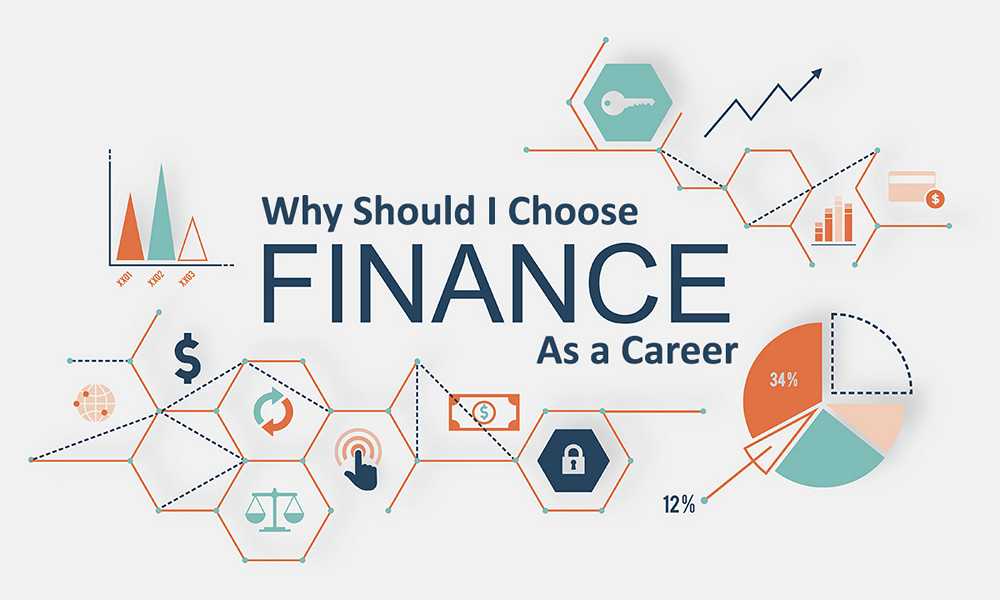How many jobs are available in finance? According to the U.S. Bureau of Labor Statistics, there are 1.5 million Finance Jobs waiting to be filled. And if you’re an experienced finance professional, the competition isn’t going to get any easier.
More and more people are looking to find work in the finance field as unemployment continues to rise. According to the Bureau of Labor Statistics, the number of financial analysts in the U.S. will drop by 4% over the next decade. Finance is the field of economics that studies money. Finance is one of the oldest professions in the world. It involves studying the factors behind an economy and how those factors affect the flow of money and exchange rates.
Is finance a Good Career Path?
As a finance career, it can be said that there are no real limitations when it comes to the path one can take in this field. After all, this industry is so vast and constantly changing, there is always something new to learn. So if you have an eye for numbers, then you could do just fine in this field.
Most people think of the finance industry as being strictly for those who are born with a silver spoon in their mouth. Not so. There are jobs within the financial industry for anyone who wants to pursue a career in this field. If you want to enter the world of finance and investment, there are many routes you can take to pursue your career goals. Some of these options include finance degree programs, graduate degrees, certifications, and internships.

Types of Jobs in Finance
Finance is an exciting career choice that allows you to make money working on Wall Street and in the corporate world. But if you are interested in the financial industry, you need to earn a bachelor’s degree in finance, economics, business, accounting, or another related field. With a bachelor’s degree, you will learn how to read financial statements, analyze company finances, and even trade stocks. Plus, you will also develop skills like leadership, communication, and problem-solving.
Investment Banker
To start, an investment banker will need to take at least two years of undergraduate study. This is followed by three years of graduate school, and after that comes four years of training and work experience. Once the investment banking program is complete, the newly minted investment banker may choose to work for a large investment bank, an independent investment bank, or a boutique investment bank. The salary depends on the firm, according to indeed.com most investment bankers start out earning around $75,600 a year.
Financial Advisors
How does a financial advisor start his or her job? With a degree in finance and accounting. According to the Bureau of Labor Statistics, the field of financial management is projected to grow 9% over the next decade, which means financial advisors will need to be even more prepared to answer questions about money. So, it’s no surprise that the BLS reports that financial professionals with the highest educational requirements were more likely to report earning the highest incomes.
Financial Examiner
A financial examiner reviews securities filings and audits them to see whether the company is complying with federal securities laws. These auditors don’t examine individual transactions, but rather review the overall financial statements of a company, which should give investors some insight into whether a company is making wise investments. hey, work hard to build long-term relationships with their clients. By helping people become educated on the ins and outs of taxes, they help their clients make better decisions for the future.
Credit analyst
There is nothing more exciting than a credit analyst job. The career is basically focused on helping people understand the credit bureaus and making sure all those customers are treated fairly. Credit analysts have many perks and benefits to keep them motivated and energized while working for a major financial institution.
It’s often said that you have to be in the right place at the right time to land a great credit analyst job. But there are ways to get there. It’s a lot like landing a great job anywhere else. You need to be well prepared and put yourself in a position to succeed.
Corporate Finance
The corporate finance job is a highly technical field, which requires that you possess a very strong grasp of math. You’ll need to have a basic understanding of algebra and basic calculus to understand the equations used in corporate finance. Also, you’ll need a strong grasp of finance theory and how it impacts business decisions, along with excellent writing skills. To learn more about corporate finance, please check out our corporate finance career guide.
Accounting
If you’re interested in accounting jobs, you’ll want to learn the fundamentals. First, learn about numbers, especially percentages. You may also need to know how to calculate payroll taxes, depreciation, and write-offs. You can learn more about this through online courses, such as Learn Accounting Now, which offers self-paced, interactive lessons.
“Accounting job” might not sound exciting, but in today’s world, it could be a very lucrative job. In fact, according to the Bureau of Labor Statistics, there are over 1 million accounting jobs available.

What Skills Do I Need To Be Successful In Finance?
This skill is crucial if you want to get hired at a bank or financial institution. It’s no secret that banking isn’t a glamorous career, but it still pays very well. Most jobs require at least a bachelor’s degree in accounting, finance, or business management.
If you don’t have a bachelor’s degree in finance, you may be able to still find a job in the field. Here are some tips to help you get started. Start by completing your college degree. If you can complete your bachelor’s degree, you’ll be in a much better position than someone who hasn’t gone to school yet.
Educational background to start a Finance Job

Bachelor of Science in Finance
The degree is designed for people who have completed college and want to pursue a career as a Certified Public Accountant. Students receive a total of 120 credit hours from the University. These credits come from courses offered by the University and online resources.
The BSc Finance program at the University of Wales Trinity Saint David provides a broad-based foundation in finance and financial management. The degree takes three years to complete and includes five main components: Finance & Business, Accounting, Economics, Management, and Information Technology. Students study core modules across all five components and also choose specialized modules to enhance the depth of their course.
Bachelor of Science in Economics
An economics degree is perfect if you’re interested in business or marketing. A Bachelor of Business Administration or Marketing program can give you the skills needed to run a successful business. You’ll learn the principles of economic theory, accounting, finance, marketing, management, operations, etc. While a Bachelor of Business Administration or Marketing degree will be useful to any career path, those in the sciences are likely to be hired for jobs like sales, IT, technical, and marketing roles.
Bachelor of Science in Accounting
Bachelor of Science in Accounting – Students will receive a degree in accounting from College. Classes consist of business courses, a course in accounting fundamentals, and a course in a specialized area of accounting such as finance, taxation, auditing, or human resources. The program is designed to prepare graduates for entry-level positions in public accounting firms, corporations, financial institutions, government agencies, and non-profit organizations, or for further study in graduate programs.
Top 5 best-paying jobs in finance
So what are the highest paying finance jobs? I did some research and found that while some of the best-paying finance jobs aren’t necessarily the most obvious ones, many of the top-paying finance jobs are still relatively obscure. So what do you need to qualify for the highest paying finance jobs? According to PayScale, some of the top-paying finance jobs include:
1. Chief Financial Officer ( average salary: $183,600. )
2. Investment Banker ( average salary: $180,000. )
3. Corporate Finance Manager ( average salary: $167,400. )
4. Financial advisor– ($158,100. )
5. Vice President, Finance – ( average salary: $155,000 )
Is finance a stable Job career?
While it seems like many financial professionals have stable incomes, that isn’t always the case. In fact, it’s more accurate to say that financial services jobs aren’t the “safe” choice they may seem. According to the U.S. Bureau of Labor Statistics, the median annual salary for financial and insurance brokers was $62,600 in 2017. Those in the banking and financial services sector made an average of $73,000 per year.

Why Should choose Finance as a career?
Today’s financial system isn’t necessarily the best for every company. And even if you find a perfect match, you may not have access to it. So why work in finance? Because it gives you the chance to see the impact of your decisions and actions in real-time. When you work in finance, you’ll be able to see which projects make the biggest difference in the long run. You’ll see what really matters when you start getting the pay. And you’ll see the value of your own contributions. That’s something almost no other job offers.
Read More: How many jobs are available in property-casualty insurers
Pros and Cons of Finance Job
Pros of finance job
Here’s why it’s such a fascinating field. You deal with so many numbers and different types of financial data that you’ll never see the same thing twice. Your daily job will be different every day. But that’s the cool part! Finance professionals work in an industry where there’s always something new to learn. You’ll always feel like you’re on the cutting edge of finance, learning new skills and pushing the envelope.[/box]
Cons of finance job
Most people who enter the field of finance end up hating it. They end up hating the stress, the pressure, and most of all, the fact that they don’t really have a choice. While some people choose to finance for the glamour, it seems that many others come into the field because they want to help companies grow and they don’t want to sit back while they watch other people make the decisions that will affect their lives. They want to make sure that the decisions they make are sound.[/box]
Conclusion :
A finance job can be an excellent choice if you love working with numbers. There are many areas of finance where you can excel as a professional. These include accounting, taxation, banking and finance, treasury, investments, risk management, equity research, and portfolio management. However, there are many different types of finance jobs available, and if you want to be a successful finance professional, it is important that you understand what job you are after, and where you would like to go after.

